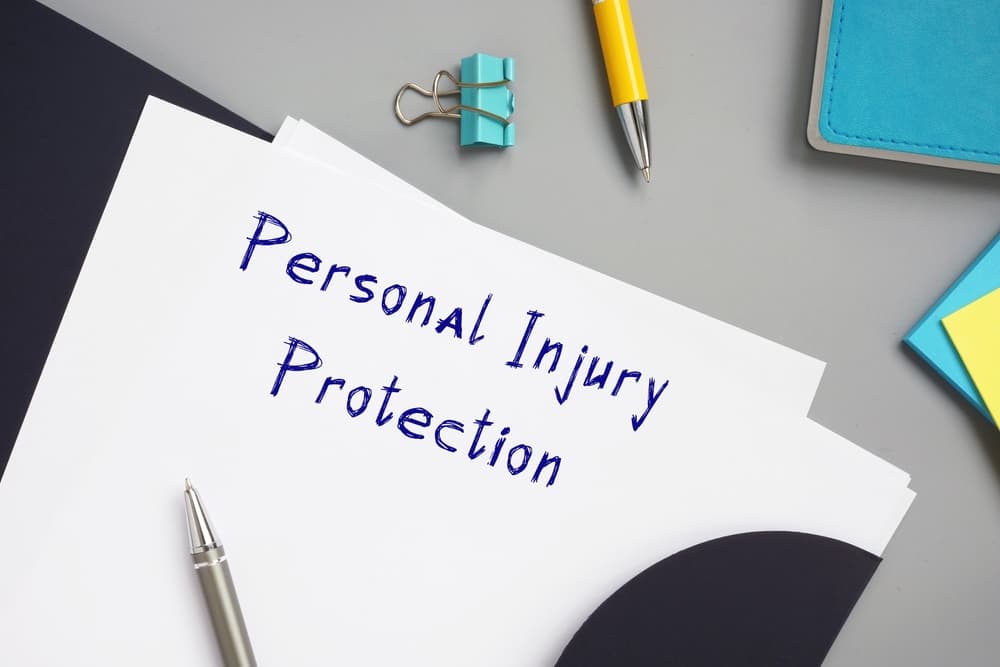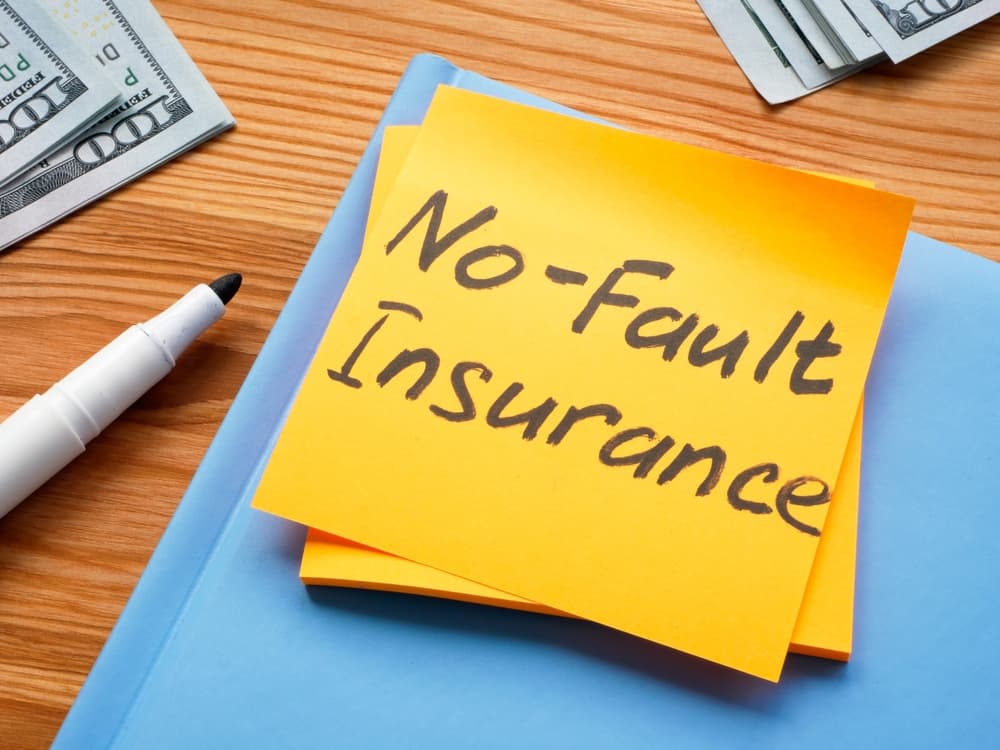Motor vehicle accidents can be life-altering events that leave victims with significant injuries, medical expenses, and lost income. How these damages are compensated varies dramatically depending on the insurance system in your state. If you live in a no-fault state, understanding how these claims work is essential to ensuring you receive the benefits you're entitled to after an accident. Schedule a free consultation with a local car accident lawyer to understand the circumstances of your claim better and proceed accordingly for maximum compensation.
Understanding the No-Fault Insurance System
No-fault car insurance represents a fundamentally different approach to handling accident claims compared to the traditional tort-based system used in many states. In a no-fault system, each person involved in an accident turns to their own insurance policy for compensation, regardless of who caused the collision. The no-fault system was designed to accomplish several objectives: reducing litigation costs, speeding up the payment of claims, lowering insurance premiums, and ensuring that accident victims receive prompt medical treatment without waiting for fault determinations.
Currently, twelve states and Puerto Rico use some version of a no-fault insurance system: Florida, Hawaii, Kansas, Kentucky, Massachusetts, Michigan, Minnesota, New Jersey, New York, North Dakota, Pennsylvania, and Utah. Each state has its own specific requirements, coverage minimums, and exceptions to the no-fault rule, making it important to understand the particular laws in your state. A local car accident attorney knows and can clarify the process while navigating it on your behalf.
Understanding Personal Injury Protection (PIP)

The cornerstone of no-fault insurance is Personal Injury Protection (PIP) coverage, which is mandatory in no-fault states. PIP coverage pays for medical expenses, lost wages, and other costs regardless of who caused the accident. That means that even if you were entirely at fault for a collision, your own insurance company would still cover your medical bills and other losses up to your policy limits.
While no-fault insurance streamlines the claims process for many accident victims, it's important to understand that this system also significantly limits your right to sue the at-fault driver. In most no-fault states, you cannot file a lawsuit against the other driver unless your injuries meet a certain threshold of severity or your medical expenses exceed a specific dollar amount. These thresholds vary by state and are designed to keep minor injury claims out of the court system while allowing seriously injured victims to seek full compensation through traditional liability claims.
Types of Compensation Available Under No-Fault Insurance
No-fault insurance provides several categories of benefits to help accident victims recover both physically and financially. Understanding these benefits is vital to maximizing your compensation after an accident. Compensation you may recover under no-fault insurance evaluates the economic damages incurred.
Medical Expenses
The primary purpose of no-fault insurance is to ensure prompt payment of medical expenses following an accident. Medical expense coverage under PIP applies regardless of your health insurance. PIP is typically the primary payer, meaning it pays before your health insurance. It can be particularly valuable for accident victims with high-deductible health plans or those without health insurance. PIP coverage typically pays for:
- Essential Medical Services: Emergency room visits and ambulance services, hospital stays and surgical procedures, doctor's appointments and specialist consultations, diagnostic tests like X-rays, MRIs, and CT scans, and physical therapy and rehabilitation services.
- Ongoing Treatment Needs: Prescription medications, medical equipment such as wheelchairs, crutches, or braces, in-home medical care, follow-up appointments and long-term therapy, and mental health services for accident-related trauma.
- Alternative Treatments: Some states cover chiropractic care, acupuncture, massage therapy, pain management techniques, and other non-traditional treatments when prescribed by a physician.
Personal Injury Protection (PIP) coverage extends beyond immediate medical needs, including future medical care necessitated by accident-related injuries. While coverage limits vary by state and policy, PIP typically pays for prescribed future treatments, including follow-up appointments, additional surgeries, physical therapy sessions, medication, and specialized medical equipment needed for long-term recovery.
To access these benefits for future care, patients generally need detailed documentation from treating physicians outlining the medical necessity, expected duration, and estimated costs of continued treatment. It's important to note that PIP coverage has limits, which vary significantly by state.
Lost Wage Benefits
Beyond medical expenses, one of the most significant financial burdens after an accident is lost income due to the inability to work. No-fault insurance addresses this through lost wage benefits, compensating for earnings lost while you recover from your injuries. Lost wage benefits typically cover the following:
- Direct Income Replacement: A percentage of your regular salary or wages (usually 60-80%), compensation for missed work hours for medical appointments, coverage for a limited time period (often up to 1-3 years, depending on the state), and benefits for both partial and total disability.
- Work-Related Financial Impacts: Lost business opportunities for self-employed individuals, diminished earning capacity due to long-term injuries, lost commissions or performance bonuses, and reduced benefits like retirement contributions.
- Replacement Services: Costs of hiring someone to perform job duties you cannot complete, vocational rehabilitation services, job retraining if your injuries prevent returning to your previous occupation, and educational expenses related to career changes necessitated by your injuries.
The calculation of lost wage benefits varies by state. Still, it typically involves documenting your pre-accident income through pay stubs, tax returns, or employment records. Some states use a simple percentage of your average weekly wage. In contrast, others have more complex formulas considering variables like occupation, age, and future earning potential.
Like medical benefits, lost wage coverage has limits under no-fault insurance. These limits may be expressed as a percentage of your income, a maximum weekly benefit amount, or a maximum time period during which benefits are payable. In most states, lost wage benefits are also subject to a maximum total dollar amount.
Additional Essential Services Coverage
No-fault insurance recognizes that injuries from car accidents often impact more than just medical costs and workability. Many policies include coverage for essential services—tasks you would typically handle yourself but cannot perform due to your injuries. Essential services coverage typically includes:
- Household Assistance: Cleaning and maintenance services, lawn care and snow removal, grocery shopping and meal preparation, laundry, and other routine household tasks.
- Personal Care Assistance: Help with bathing, dressing, and personal hygiene, assistance with mobility around the home, medication management, and transportation to medical appointments and essential errands.
- Family Care Responsibilities: Childcare expenses, elder care for dependent family members, pet care services, school transportation, and after-school supervision.
This coverage is particularly valuable for accident victims with significant family responsibilities or those who live alone without readily available help from family members. The benefits are typically calculated based on a reasonable hourly rate for these services in your geographic area, up to a maximum daily or weekly amount. To qualify for essential services benefits, you'll need documentation from your healthcare provider explaining which activities you cannot perform and for how long. Some insurance companies may also require receipts or service contracts to prove that you incurred these expenses.
How Does a Lawyer Help With a PIP Claim?
An attorney can be instrumental in maximizing your PIP benefits following a car accident. Your lawyer will first analyze your policy to identify all available coverages and ensure you know the benefits that insurance adjusters might not voluntarily disclose. When filing your claim, an attorney ensures all documentation is completed correctly and submitted within strict deadlines, preventing technical denials.
If your insurer disputes the necessity of treatments, prematurely terminates benefits, or undervalues your claim, your car accident lawyer can challenge these decisions with supporting medical evidence and legal arguments. For complex cases involving ongoing medical needs, an attorney can work with healthcare providers to document the necessity of future treatments to secure continued coverage.
What No-Fault Insurance Doesn't Cover

While no-fault insurance provides valuable benefits, it's equally important to understand its limitations. No-fault policies specifically exclude certain types of compensation that might be available in traditional tort-based systems. The most significant exclusion is non-economic damages—compensation for pain and suffering, emotional distress, loss of enjoyment of life, and similar intangible harms.
The only way to pursue compensation for pain and suffering is to meet your state's threshold to step outside the no-fault system and file a traditional liability claim against the at-fault driver. Additionally, no-fault insurance typically doesn't cover:
- Property damage to your vehicle (this is handled through collision coverage or a claim against the at-fault driver's property damage liability insurance)
- Damages that exceed your PIP coverage limits
- Injuries to pedestrians or cyclists that you might cause while driving
- Injuries resulting from driving under the influence or while committing a felony
Documenting pain and suffering for compensation requires a comprehensive and consistent approach to create a compelling record of your non-economic damages. Start by maintaining a detailed daily journal that tracks pain levels, emotional states, sleep disturbances, and limitations on activities you previously enjoyed, noting specific examples such as "unable to pick up my child" or "missed family reunion due to pain."
Strengthen your claim with professional documentation by discussing all symptoms with your healthcare providers at every visit, seeking treatment for both physical and psychological effects, and considering evaluations from mental health professionals to establish emotional impacts like anxiety or depression. Supplement these records with before-and-after testimony from family, friends, and colleagues who can objectively describe how your injuries have changed your personality, capabilities, and quality of life, providing specific examples that illustrate the real-world impact of your suffering.
Stepping Outside the No-Fault System: Meeting the Threshold
While no-fault insurance restricts your ability to sue the at-fault driver, all no-fault states provide a mechanism for seriously injured victims to step outside the system and pursue a traditional liability claim. This mechanism, known as the "threshold," can be based on either the severity of injuries (a verbal threshold) or the amount of medical expenses (a monetary threshold), depending on the state. Verbal thresholds typically allow lawsuits for injuries that result in:
- Wrongful death
- Significant disfigurement or scarring
- Permanent injury or disability
- Loss of a body part or bodily function
- Bone fractures (in some states)
Conversely, monetary thresholds permit lawsuits when medical expenses exceed a specific dollar amount, ranging from as low as $1,000 in some states to $10,000 or more in others. If you meet your state's threshold, you can file a lawsuit against the at-fault driver seeking compensation for economic damages exceeding your PIP limits and non-economic damages like pain and suffering. This is particularly important in catastrophic injury cases where the intangible harms often far outweigh the tangible economic losses.
Common Challenges with No-Fault Claims
While the no-fault system was designed to simplify the claims process, accident victims often encounter significant challenges when seeking benefits. Being aware of these potential obstacles can help you navigate them more effectively. Insurance companies often employ teams of adjusters and attorneys trained to minimize payouts and find reasons to deny or limit legitimate claims. Even in no-fault states, where the process is supposed to be straightforward, the reality is that insurance providers are profit-driven businesses with financial incentives to pay as little as possible on each claim.
Pre-Existing Conditions
One common challenge is claim denials based on allegations that injuries are not accident-related or from pre-existing conditions. Insurance companies may argue that your symptoms result from pre-existing conditions rather than the accident. Countering these denials requires detailed medical documentation establishing a clear causal link between the accident and your injuries.
Premature Termination of Benefits
Another frequent issue is the premature termination of benefits. Insurers often employ independent medical examinations to justify ending benefits before you've fully recovered. Having your treating physician thoroughly document your ongoing symptoms and limitations is the best defense against this tactic.
Disputing Medical Treatments
Insurance companies may also dispute the necessity or reasonableness of certain medical treatments, particularly alternative therapies or treatments that extend beyond what the insurer considers typical for your type of injury. Prior authorization for treatments when possible and clear documentation of medical necessity from your healthcare provider can help address these disputes.
Lost Wage Challenges
For lost wage claims, challenges often arise around documenting self-employment income or variable compensation like commissions or bonuses. Maintaining detailed financial records and demonstrating consistent pre-accident earnings patterns are critical in these situations.
The Role of Legal Representation in No-Fault Claims

While the no-fault system was initially intended to reduce the need for attorney involvement, legal representation remains valuable in many circumstances. An experienced car accident attorney can be particularly helpful in the following ways:
- Determining whether your injuries meet the threshold to pursue a liability claim
- Challenging improper claim denials or benefit terminations
- Negotiating with insurance companies over disputed benefits
- Ensuring that all available benefits are identified and pursued
- Coordinating benefits from multiple sources (PIP, health insurance, disability insurance)
- Representing you in arbitration, which is required for no-fault disputes in some states
- Filing a lawsuit if you meet the threshold to step outside the no-fault system
Hire A Trusted Car Accident Attorney
Most car accident lawyers offer free initial consultations and work on a contingency fee basis, meaning they only collect fees if, and when, they recover compensation for you. This makes legal representation accessible to all accident victims. If you sustained injuries or lost a loved one, schedule a free consultation to discuss filing a no-fault car accident claim.
